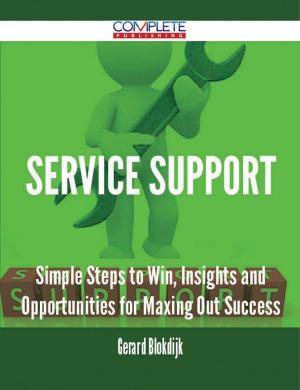Smart Work
Why Organizations Full of Intelligent People Do So Many Dumb Things and What You Can Do About It
Business & Finance, Management & Leadership, Decision Making & Problem Solving, Planning & Forecasting, Business Reference| Author: | Steven A Stanton | ISBN: | 9780998082233 |
| Publisher: | FCB Partners | Publication: | March 1, 2017 |
| Imprint: | FCB Partners | Language: | English |
| Author: | Steven A Stanton |
| ISBN: | 9780998082233 |
| Publisher: | FCB Partners |
| Publication: | March 1, 2017 |
| Imprint: | FCB Partners |
| Language: | English |
Smart Work makes the argument that organizational transformational is needed now. When the urgent drives out the important, organizations are trapped in the status quo. When employees are frantically busy with email madness and dysfunctional meetings, there’s no time to think. Without reflection, there’s no way to create a smart future for the organization.
New York Time best-selling author, Steven Stanton describes how organizations become prisoners of their bad habits and how Continuous Improvement programs only provide expensive “better sameness” and unintentionally constrain big change.
Smart Work describes a dramatically new organizational model, based on new technologies, which will provide organizations with unprecedented levels of self-awareness and sentience – the ability to sense, understand, and respond to marketplace information.
Readers of Smart Work will learn:
- To recognize the symptoms of Project-itis and how to defeat it
- What digitized processes are, and the role they play in performance improvement
- How to identify key metrics and develop a balanced measurement scorecard
- How to proactively sense deep customer and competitor actions and to avoid surprises
- When to power-up governing processes to achieve higher levels of organizational synergy
Smart Work presents both a clear and compelling argument for why BIG change is needed, and a roadmap for successful execution.
Unfortunately, traditional organizations have developed formidable defenses against the very changes they need for survival. For all their assets, large organizations are weaker than the sum of their parts because their basic design is explicitly intended to limit change and innovation.
Smart Work makes the argument that organizational transformational is needed now. When the urgent drives out the important, organizations are trapped in the status quo. When employees are frantically busy with email madness and dysfunctional meetings, there’s no time to think. Without reflection, there’s no way to create a smart future for the organization.
New York Time best-selling author, Steven Stanton describes how organizations become prisoners of their bad habits and how Continuous Improvement programs only provide expensive “better sameness” and unintentionally constrain big change.
Smart Work describes a dramatically new organizational model, based on new technologies, which will provide organizations with unprecedented levels of self-awareness and sentience – the ability to sense, understand, and respond to marketplace information.
Readers of Smart Work will learn:
- To recognize the symptoms of Project-itis and how to defeat it
- What digitized processes are, and the role they play in performance improvement
- How to identify key metrics and develop a balanced measurement scorecard
- How to proactively sense deep customer and competitor actions and to avoid surprises
- When to power-up governing processes to achieve higher levels of organizational synergy
Smart Work presents both a clear and compelling argument for why BIG change is needed, and a roadmap for successful execution.
Unfortunately, traditional organizations have developed formidable defenses against the very changes they need for survival. For all their assets, large organizations are weaker than the sum of their parts because their basic design is explicitly intended to limit change and innovation.















